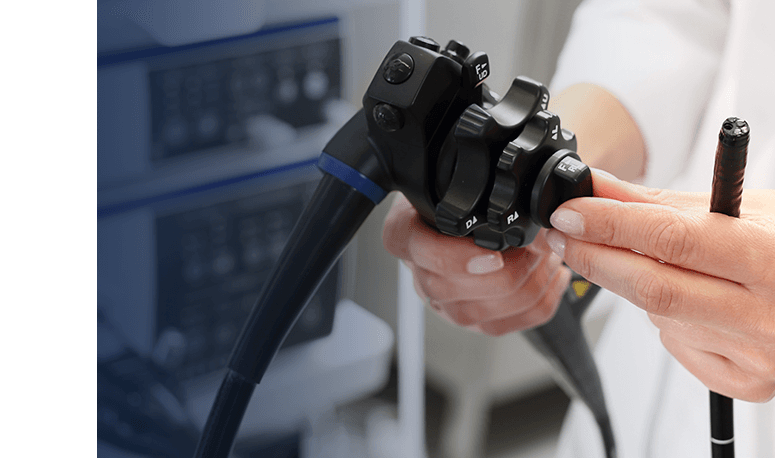Illnesses like colorectal cancer, which often develop silently with hidden symptoms, pose a significant challenge. Many individuals remain unaware of their risk until the disease progresses to a more advanced and difficult-to-treat stage. This underscores the critical importance of early detection and screening. Regular screenings, such as colonoscopies, enable the identification of precancerous polyps or early-stage cancers, allowing for timely intervention and preventing the development of more serious health problems.
Understanding Colorectal Cancer
Colorectal cancer develops in the colon or rectum. It is a significant health concern in many countries, including Singapore where it is the most common cancer. Colorectal cancer often begins as polyps on the inner lining of the colon or rectum. While most polyps are benign or noncancerous, some can mutate and become cancerous over time.
Most cases of early-stage colorectal cancer progress without noticeable symptoms, allowing it to advance undetected. This delayed diagnosis can significantly complicate treatment, affecting the chances of successful outcomes. Fortunately, colonoscopy is an effective tool for early detection and prevention.
How Is a Colonoscopy Done?
A colonoscopy is a type of endoscopy, a medical procedure that uses an endoscope—a flexible tube equipped with a light and camera at its tip—to examine the inside of the large intestine. In a colonoscopy, the colonoscope is gently inserted through the anus and rectum into the colon. As it moves through the large intestine, the camera transmits detailed images to a monitor, allowing the doctor to examine the colon’s lining closely.
Why Is Colonoscopy Important for Colorectal Cancer Prevention?
A colonoscopy is essential for colorectal cancer prevention for several reasons:
- Family History
- Detection and Removal of Precancerous Polyps
A colonoscopy allows your specialist to not only detect precancerous polyps but also remove them during the same procedure. Removing polyps through a process known as polypectomy is a key preventive measure for developing colon cancer. - Early Detection of Cancer
A colonoscopy allows doctors to detect and diagnose colorectal cancer at an early stage when it is most treatable. This enables timely treatment and increases the chances of successful outcomes.
- Detection and Removal of Precancerous Polyps
- Biopsy Capability
A colonoscopy allows for immediate tissue sampling (biopsy) of suspicious areas within the colon. This is vital because biopsy results can confirm the presence of cancer, determine its stage and type, and guide the most appropriate treatment plan.
When and How Often Should I Get a Colonoscopy?
The risk of developing colorectal cancer increases as people age. This is why it is recommended that average-risk individuals start regular colonoscopy screenings at the age of 50. If a colonoscopy shows no signs of polyps, cancer, or other abnormalities, it is considered a normal result. In this case, the recommended next screening is typically 10 years later.
However, people with certain risk factors may need to start screening earlier or undergo colonoscopies more frequently. Individuals with the following factors are considered high-risk:
- Family history of colorectal cancer
- Personal history of polyps or colorectal cancer
- Bowel conditions like Crohn’s disease or ulcerative colitis
- Confirmed or suspected hereditary colorectal cancer syndromes, such as familial adenomatous polyposis (FAP) or Lynch syndrome
- History of getting radiation to the abdomen or pelvic area
If you have any of these risk factors, it is essential to consult with a colorectal specialist to determine the most appropriate frequency for colonoscopy screenings.
Clinical Advantages of Colonoscopy
Colonoscopy screenings offer several advantages for the diagnosis and prevention of colorectal cancer.
- Accurate Diagnosis Colonoscopy is considered the gold standard for colorectal cancer screening due to its high accuracy in detecting abnormalities. Its highly detailed images of the colon’s lining enable doctors to spot even the smallest polyps, inflammation, or early signs of cancer.
- Comprehensive Diagnosis, Treatment, and Prevention Colonoscopy is a multi-purpose tool that allows early detection and immediate removal of precancerous polyps, significantly reducing the risk of colorectal cancer. This all-in-one approach reduces the need for multiple appointments or additional interventions.
- Recognition of Urgent Symptoms A colonoscopy can help identify the cause of urgent symptoms such as rectal bleeding, persistent abdominal pain, or changes in bowel habits. Early diagnosis and treatment can improve outcomes for serious conditions.
- Diagnosis of Other Conditions Other than colorectal cancer, a colonoscopy can also diagnose non-cancerous conditions like diverticulitis, ulcerative colitis, or Crohn’s disease, broadening its utility beyond cancer prevention.
Safeguard Your Health Through Early Action
Colorectal cancer remains one of the most preventable forms of cancer when detected early. Colonoscopy plays a pivotal role in identifying and removing precancerous polyps, diagnosing early-stage cancer, and addressing other urgent symptoms. By taking proactive steps with regular screenings, you can significantly reduce your risk and protect your long-term health.
Our colorectal surgeons are highly experienced in colonoscopy procedures and colorectal screening in Singapore. With their expertise, rest assured that you will receive accurate diagnoses, personalised treatment plans, and optimal care. Contact us today to set an appointment.



